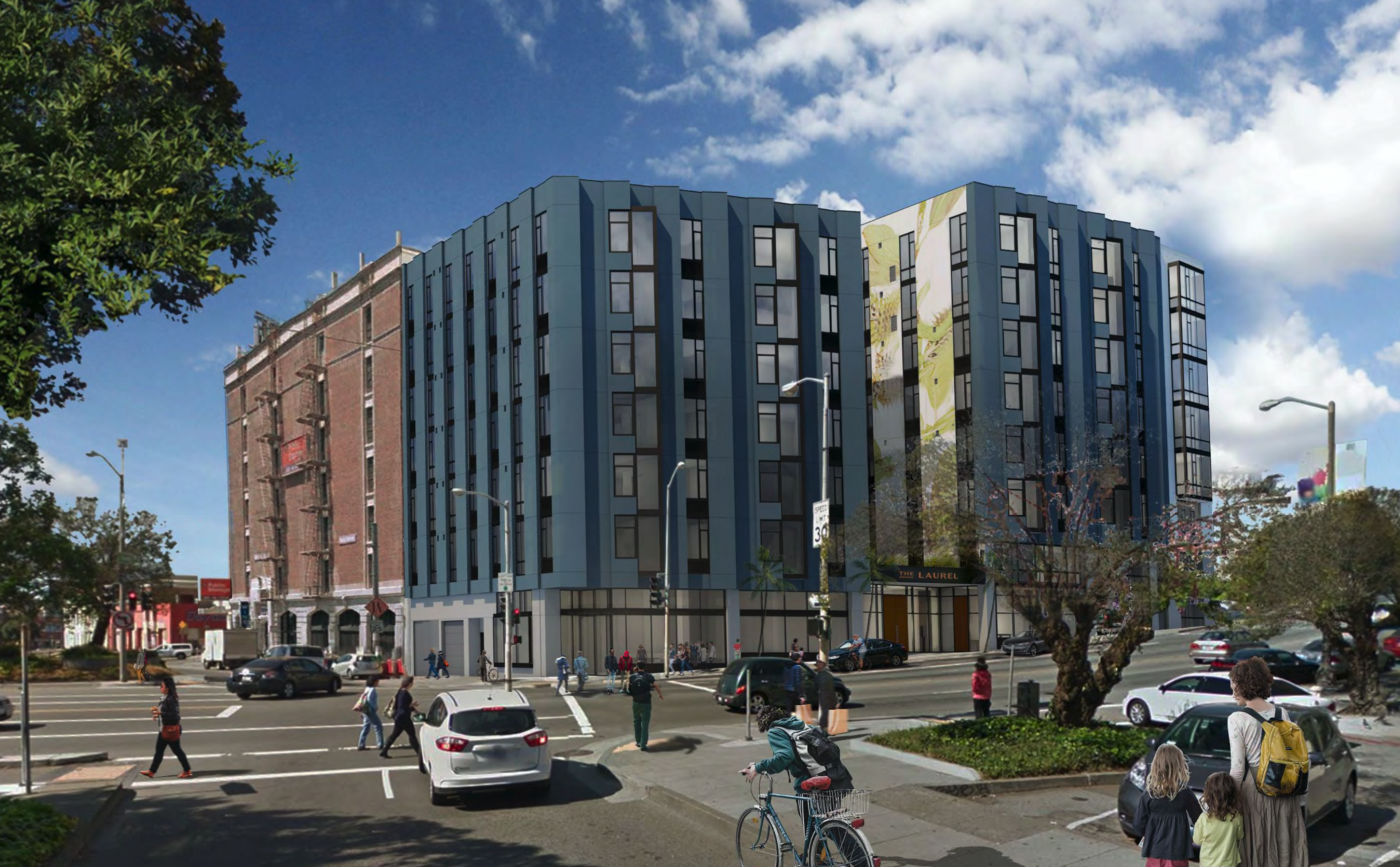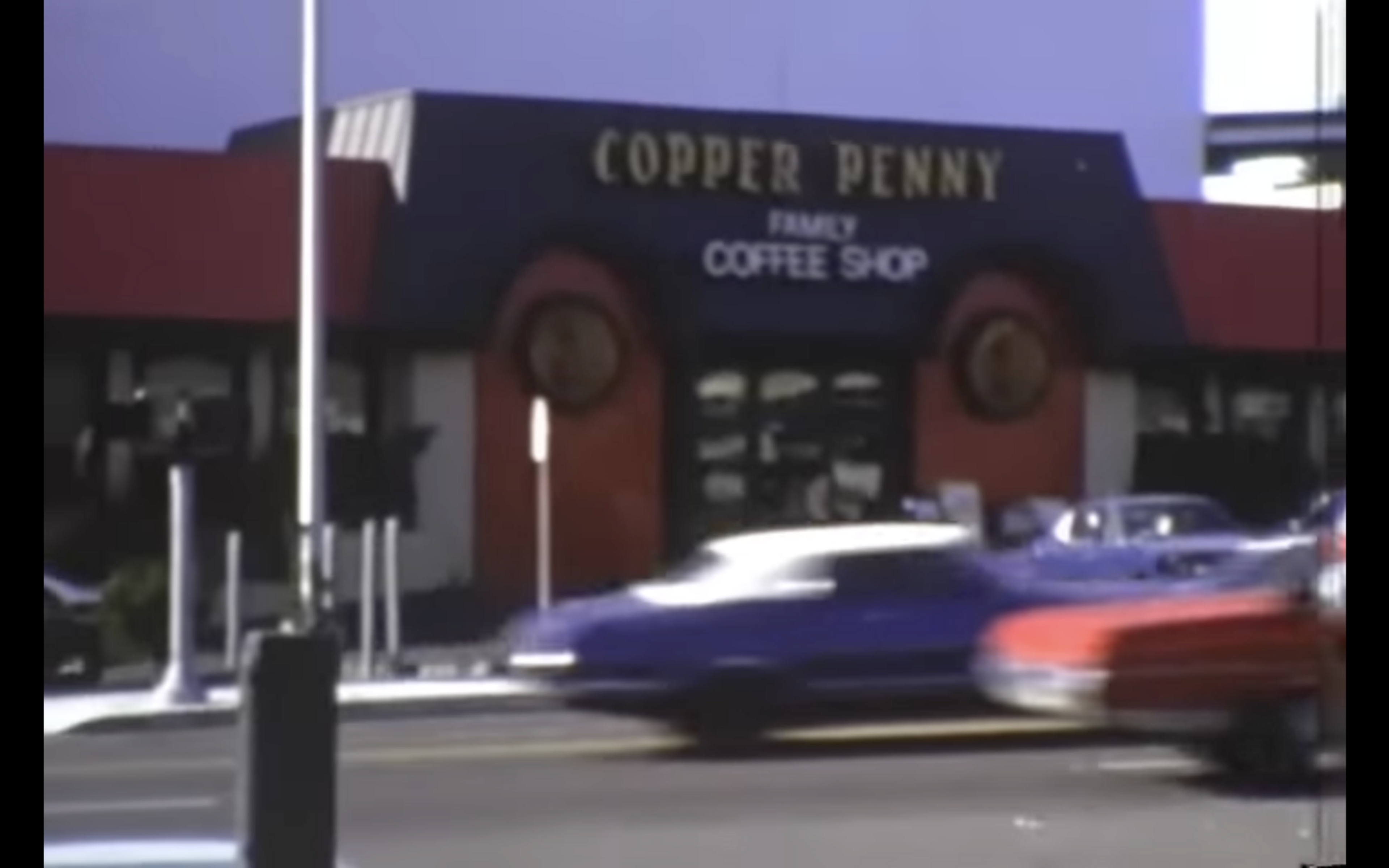A shuttered San Francisco diner has sat empty for over eight years, despite long-standing plans to develop it into luxury apartments.
The Lucky Penny diner, next to a Trader Joe’s at 2670 Geary Blvd. in Laurel Heights, was a favorite for late-night hospital visitors and University of San Francisco students, as it stayed open around the clock.
After it served its last patty melt on Christmas Eve in 2015, plans emerged in 2018 to demolish the diner and erect a building with 101 luxury apartments, dubbed the Laurel, by developer Presidio Bay Ventures.
But it’s 2024, and the Lucky Penny remains a shell of its once-bustling self.

Ex-cop Dominic Yin, who runs the family trust that owns the land and building, blames city red tape and swelling labor and building costs brought about by inflation for the delay.
“Take whatever the price [for development] was and double or triple it,” Yin said, declining to share how much construction would cost currently.
A 2019 building permit for an eight-story building with apartments and a street-level commercial space pegged the cost at $25 million. The Planning Commission approved (opens in new tab) the project in January 2020.
Meanwhile, the diner sits empty, covered in graffiti and murals. The space in front is used for parking by Trader Joe’s customers.
Parking their Ford Fusion in front of a mural of a snarling dragon on the Lucky Penny building, Mike and Alicia Shore had mixed feelings about the state of the diner.
“I like what they’ve done with the place,” Alicia Shore said, referring to the murals painted on the front.
Mike Shore said that while the parking is convenient, the building is an eyesore.
“I wish they’d do something with it,” he said.

Walking past the Lucky Penny after shopping at Trader Joe’s, Alice Tourian said she likes the idea of having another business there but doesn’t want more housing.
“A market or a coffee shop, yes,” Tourian said. “But a bunch more people living here, no.”
Al Haddad, owner of House of Hummus, was jubilant about the idea of 100-plus homes across the street from his restaurant. Haddad said the homes would be great for USF students and would probably bring more customers to his door.
“I think it’s the best thing for this corridor,” Haddad said. “If there’s 300 people there, I bet I’d get at least 50.”
Plans filed in 2020 say the Laurel (opens in new tab) would have a roof deck with fire pits, an indoor garden, a gym and 2,095 square feet of commercial space on the first floor.

San Francisco’s Housing Crisis
San Francisco is a notoriously difficult and expensive place to build housing due to many fees, a slow permitting process and opportunities for projects to be denied approval by the Board of Supervisors.
The struggle to build housing comes as the state tries to force the city to build 82,000 homes by 2031.
The feds are also investigating corruption at City Hall. Four building inspection officials face criminal charges. Two have been convicted, and the other cases are ongoing. One of the four is being charged for an alleged conflict of interest after inspecting his own home.
“Working with the city can be a lengthy process,” Yin said, although he did not elaborate further, deferring to the project’s developer, Presidio Bay Ventures. The developer did not respond to questions by publication time.

The pandemic didn’t help either.
“Covid stopped everything,” Yin said.
Supervisor Catherine Stefani also alluded to construction costs, saying in a text message that “economic factors outside of our control” were factors in the project not moving forward.
Stefani said she wants to streamline the permit process and will continue to meet with the developer to try to get the project completed.
Apparent difficulties with getting the project to make financial sense are continuing despite the project being 100% market rate, which the Board of Supervisors allowed in 2020 after the developer paid $4.5 million (opens in new tab) to fund affordable housing elsewhere.


The diner, which first opened in 1972 as the Copper Penny, was well known for being cheap and open late (opens in new tab), said Yin.
This reporter remembers settling into a vinyl booth at Lucky Penny as a USF college freshman in September 2015 with dorm mates. I was grateful for a plate of bacon and eggs at 12:30 p.m., even if the eggs had a curly strand of dark hair in them.
Yin, whose parents ran the diner from 1979 before buying it in 1985, said he remembers working as a cook in the back as a teenager.
He said the developer plans to include the diner’s lacquered counter embedded with “thousands” of pennies, as well as the diner’s wallpaper with penny designs, into the project to pay homage to the greasy spoon of yore. Yin hopes a diner will return to the finished project.
“There’s potential to bring back a version of the Lucky Penny,” Yin said.
